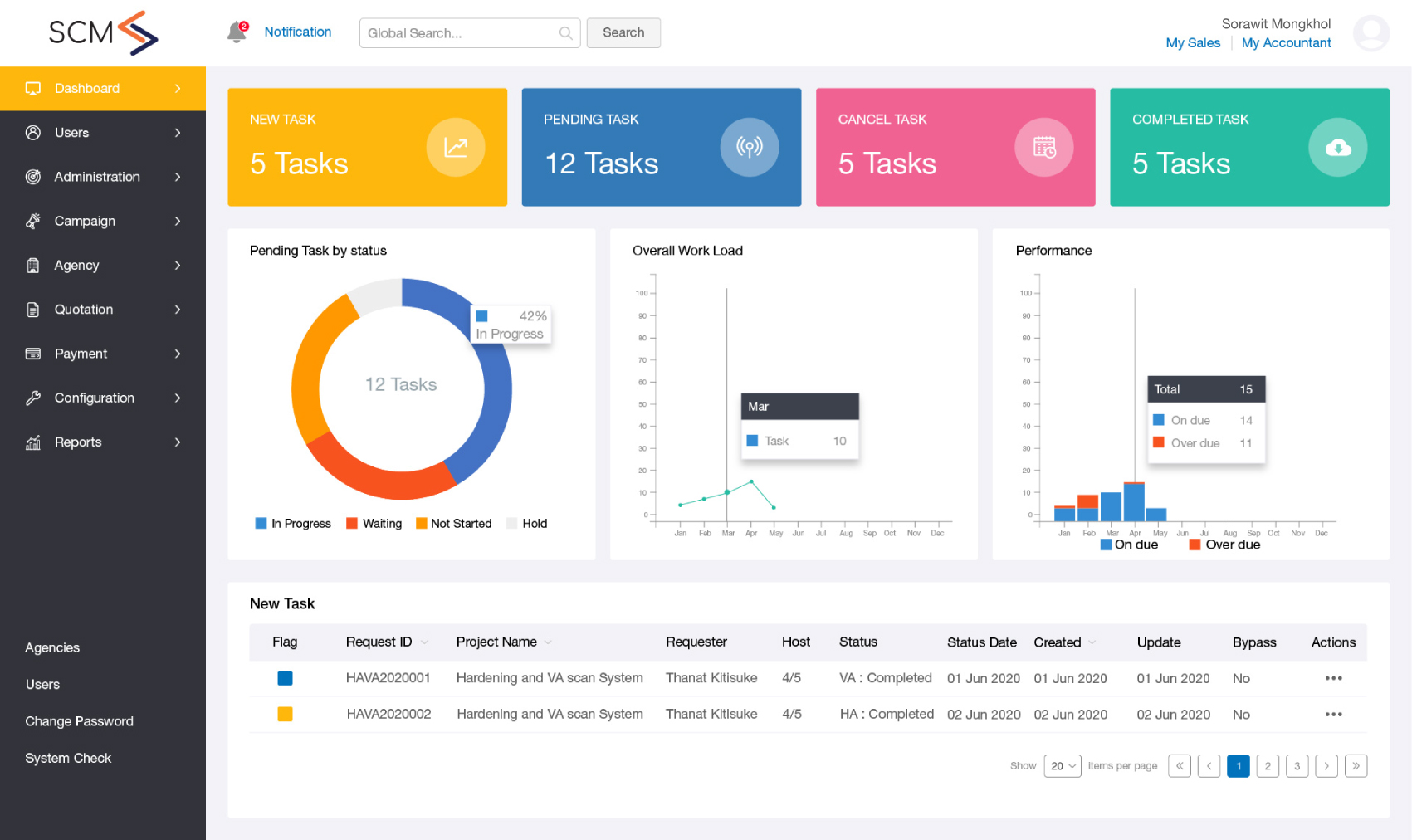In today’s competitive business landscape, CRM platforms have emerged as indispensable tools for managing customer relationships effectively. These systems offer a comprehensive suite of functionalities designed to streamline communication, enhance customer engagement, and drive business growth.
CRM platforms have revolutionized the way businesses interact with their customers, providing a centralized hub for managing all aspects of the customer lifecycle, from lead generation to post-sales support. With their ability to automate tasks, track customer interactions, and provide valuable insights, CRM platforms have become essential for businesses looking to improve their customer experience and drive profitability.
CRM Platform Overview
A customer relationship management (CRM) platform is a software application that helps businesses manage and track their interactions with customers. CRM systems can be used to manage a variety of customer-related activities, including sales, marketing, and customer service.
The key components of a CRM system typically include:
- A database of customer information, including contact information, purchase history, and preferences
- Tools for managing sales activities, such as lead tracking, opportunity management, and forecasting
- Tools for managing marketing activities, such as campaign planning, execution, and measurement
- Tools for managing customer service activities, such as case management, knowledge base management, and self-service portals
Some of the most common CRM platforms in the market include Salesforce, Microsoft Dynamics CRM, and Oracle Siebel CRM.
Benefits of Using a CRM Platform
Businesses can gain numerous advantages by implementing a CRM platform. These platforms enhance customer relationship management, streamline operations, and provide valuable insights that drive business growth.
CRM platforms offer a centralized database for customer information, enabling businesses to track interactions, preferences, and purchase history. This comprehensive view of customer data helps businesses understand their customers’ needs better, personalize marketing campaigns, and improve customer service.
Improved Customer Relationship Management
- Enhanced communication:CRM platforms facilitate seamless communication with customers across multiple channels, including email, phone, social media, and live chat.
- Personalized experiences:CRM platforms capture customer preferences and behavior, enabling businesses to tailor marketing campaigns, product recommendations, and customer service interactions.
- Increased customer satisfaction:By providing a consistent and personalized experience, CRM platforms help businesses build stronger relationships with their customers, leading to increased satisfaction and loyalty.
Streamlined Operations
- Automated workflows:CRM platforms automate repetitive tasks, such as lead generation, appointment scheduling, and email follow-ups, freeing up time for more strategic initiatives.
- Improved collaboration:CRM platforms provide a central platform for teams to collaborate and share customer information, ensuring everyone has access to the latest data.
- Increased efficiency:By streamlining operations and automating tasks, CRM platforms help businesses operate more efficiently, saving time and reducing costs.
Valuable Insights
- Customer analytics:CRM platforms provide detailed analytics on customer behavior, preferences, and trends. This data helps businesses identify areas for improvement, optimize marketing campaigns, and develop targeted strategies.
- Sales forecasting:CRM platforms track sales performance and provide insights into future sales opportunities. This information helps businesses plan for growth and make informed decisions.
- Improved decision-making:By providing access to real-time data and insights, CRM platforms empower businesses to make better decisions based on data-driven insights.
Numerous studies have demonstrated the benefits of CRM platforms. For example, a study by Salesforce found that businesses that use CRM platforms experience an average of 29% increase in sales revenue and a 34% increase in customer satisfaction.
Key Features of a CRM Platform

Effective customer relationship management (CRM) hinges on selecting a platform with the right features. Here are some essential ones to consider:
- Centralized Data Storage:Stores customer information, interactions, and preferences in one place, ensuring a comprehensive view.
- Contact Management:Manages customer contacts, including profiles, demographics, and communication history, for personalized interactions.
- Sales Management:Tracks sales opportunities, automates workflows, and provides insights to optimize sales performance.
- Marketing Automation:Automates marketing campaigns, tracks customer behavior, and personalizes communication for improved engagement.
- Customer Support:Provides tools for tracking support requests, resolving issues, and building a knowledge base for self-service.
- Reporting and Analytics:Generates reports and dashboards that provide insights into customer behavior, campaign performance, and sales trends.
- Integration:Connects with other business systems, such as ERP, email marketing, and social media, for seamless data flow.
Comparing Different CRM Platforms
When comparing CRM platforms, consider the following factors:
- Feature Set:Ensure the platform offers the features essential for your business needs.
- Scalability:Choose a platform that can grow with your business and handle increasing customer data and transactions.
- Customization:Evaluate the platform’s ability to be tailored to your specific business processes and workflows.
- Ease of Use:Opt for a platform that is user-friendly and requires minimal training for your team.
- Cost:Consider the pricing model, implementation costs, and ongoing support fees.
Security and Data Management

Customer Relationship Management (CRM) platforms prioritize the security and privacy of customer data. They implement robust security measures to safeguard sensitive information and comply with data privacy regulations.
Data Security Measures
- Encryption:Data is encrypted both at rest and in transit, ensuring it remains secure even if intercepted.
- Access Control:Access to customer data is restricted to authorized users based on their roles and permissions.
- Audit Trails:All user activities within the CRM platform are logged, providing a detailed record for compliance and security audits.
Data Privacy and Compliance, Crm platform
- GDPR Compliance:CRM platforms adhere to the General Data Protection Regulation (GDPR), which mandates the protection of personal data within the European Union.
- Data Breach Prevention:Regular security assessments and monitoring help prevent data breaches and protect against unauthorized access.
- Privacy Policies:CRM platforms provide clear privacy policies outlining how customer data is collected, used, and stored.
Best Practices for Data Management
To ensure the security and integrity of data within a CRM platform, follow these best practices:
- Regular Backups:Regularly back up customer data to prevent loss in case of system failures or data breaches.
- Data Minimization:Collect only the necessary customer data and delete any unnecessary or outdated information.
- Employee Training:Educate employees on data security best practices and the importance of protecting customer privacy.
Trends and Future of CRM Platforms

The CRM industry is constantly evolving, with new trends emerging all the time. These trends are being driven by the increasing adoption of cloud-based CRM solutions, the growing use of artificial intelligence (AI) and machine learning (ML), and the changing needs of customers.
Impact of Artificial Intelligence and Machine Learning on CRM Platforms
AI and ML are having a major impact on CRM platforms. These technologies can be used to automate tasks, improve customer segmentation, and provide personalized recommendations. For example, AI can be used to automatically qualify leads, schedule appointments, and send follow-up emails.
ML can be used to identify customer patterns and trends, and to predict customer behavior. These technologies are helping CRM platforms to become more efficient and effective.
The Future of CRM Platforms
The future of CRM platforms is bright. As AI and ML continue to develop, CRM platforms will become even more powerful and versatile. They will be able to provide businesses with a complete view of their customers, and they will be able to help businesses to automate more tasks and improve customer service.
CRM platforms will also play a key role in the development of new customer-centric applications and services.
Conclusion

In conclusion, CRM platforms have become a cornerstone of modern business operations, enabling companies to manage customer relationships more effectively, streamline their processes, and gain a competitive edge. As technology continues to advance, we can expect CRM platforms to become even more sophisticated, offering new and innovative ways to enhance customer engagement and drive business success.
